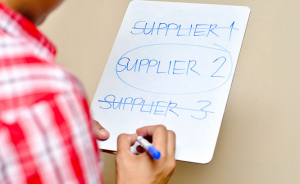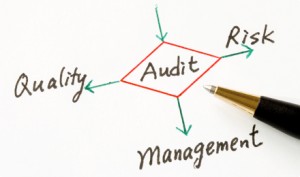BANQUO: The earth hath bubbles, as the water has,
And these are of them. Whither are they vanish’d?
MACBETH: Into the air; and what seem’d corporal melted
As breath into the wind. Would they had stay’d!
Macbeth and Banquo were talking about witches, but their sentiments have been echoed in many North American companies whose Chinese suppliers disappeared after money was wired. To avoid facing this situation, you should evaluate a potential Chinese manufacturer as thoroughly as possible before placing your first purchase order. Here are some things to consider:
Lay out Your Requirements and Expectations
First, lay out your own requirements, such as detailed product specifications and your expectations on price and quality. Only look at factories that seem able to meet your standards. Narrowing down your prospects is important, because doing proper due diligence to find the supplier that’s safest to deal with is a fairly involved process.
Watch Out For Red Flags

In your initial contacts, be alert for signs that something could be wrong. Granted, China is cheaper – that’s why you’re sourcing from there in the first place – but the rule that “an offer that sounds too good to be true, probably is” applies there just as much as it does anywhere else. An Internet search for the factory name plus “scam” can reveal if others have had problems with a particular company. And make sure the i’s are dotted and the t’s crossed: the email address should originate from the supplier’s domain name, the phone number on the website should be the phone number you’re dialing, the bank account for payment should be in China and in the supplier’s name, etc.
Compile a List

If everything seems to be in order, you can put that factory on your list of those to visit when you make your inspection tour of China. While on site, look over the factory itself and its current production, and try to interview a few of its workers. Your goal is to come away knowing whether it can meet your technical and quantity requirements. That’s a good start, but it’s not enough. You also have to look at the paperwork very closely, because there have been cases in which an individual who conducted a factory tour turned out to have nothing to do with the factory’s management.
Conduct an Audit of the Company
A thorough audit of the company should be made to confirm its quality management system and ISO certifications; its financial status; its compliance with tax, labor, and environmental laws; its ownership; and its reputation both in China and overseas. It’s also best to have someone on location in China who can assess product quality and verify shipment before the final payment is released from escrow. You can hire a specialist to handle this for you, and ideally this should be a multinational company with a presence in both China and your own jurisdiction. This will allow it to take care of inspections on the Chinese side while allowing you much easier access to legal remedies in the event of malpractice.

 Payment
Payment  My Account
My Account
